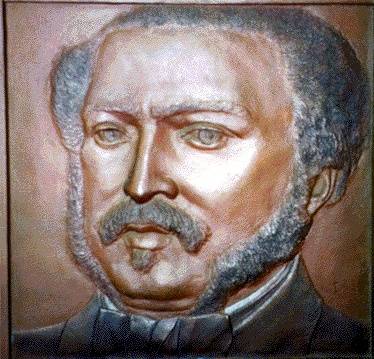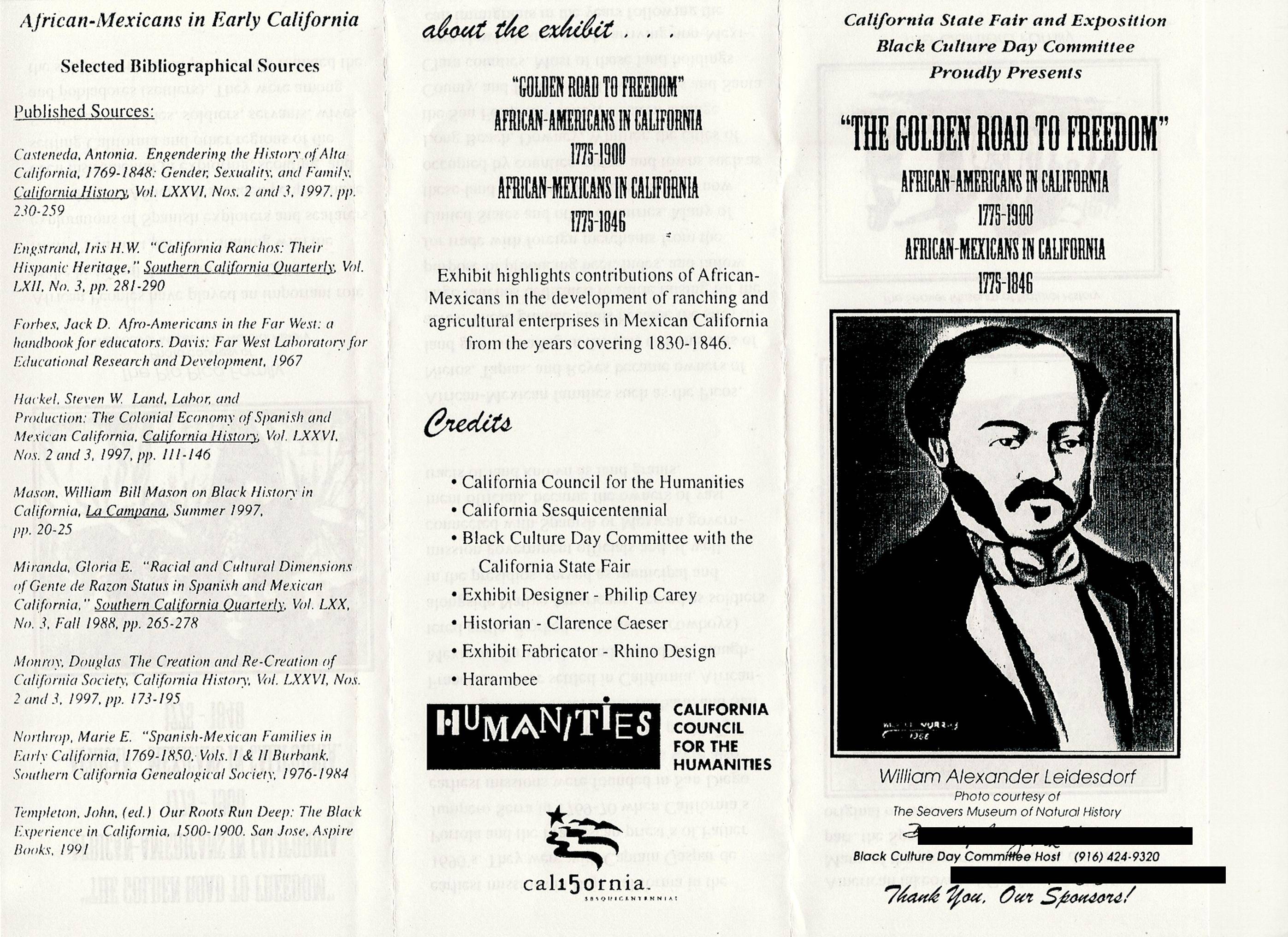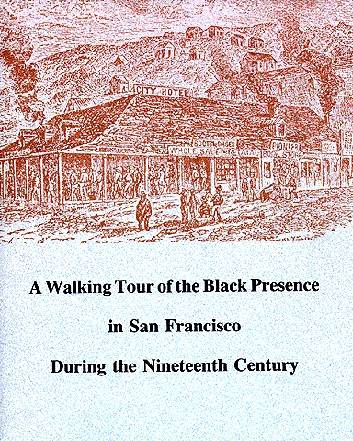William Leidesdorff: Difference between revisions
No edit summary |
mNo edit summary |
||
| (7 intermediate revisions by 3 users not shown) | |||
| Line 1: | Line 1: | ||
'''<font face = arial light> <font color = maroon> <font size = 3>Unfinished History</font></font> </font>''' | |||
[[Image:aframer1$liedesdorff-plaque.jpg]] | [[Image:aframer1$liedesdorff-plaque.jpg]] | ||
'''Leidesdorff's bronze monument can be found at the intersection of Commercial and Leidesdorff in the heart of the Financial District.''' | '''Leidesdorff's bronze monument can be found at the intersection of Commercial and Leidesdorff in the heart of the Financial District.''' | ||
''Photo: Chris Carlsson'' | |||
William Alexander Leidesdorff (1810-1848), was a native of the Danish West Indies and San Francisco's most prominent early Black citizen. Today a small alley in the downtown area is named for him. Arriving in San Francisco in 1841 as a ship's master from New Orleans, Leidesdorff immediately engaged in business, building a warehouse on what was then the waterfront at California and Leidesdorff Streets. | William Alexander Leidesdorff (1810-1848), was a native of the Danish West Indies and San Francisco's most prominent early Black citizen. Today a small alley in the downtown area is named for him. Arriving in San Francisco in 1841 as a ship's master from New Orleans, Leidesdorff immediately engaged in business, building a warehouse on what was then the waterfront at California and Leidesdorff Streets. | ||
[[File:Brochure Golden Road to Freedom-African Americans in California 1775-1900 front.jpg|left]] | |||
'''William Leidesdorff and the California Gold Rush''' | |||
He also built the City Hotel at Clay and Kearny Streets, and a residence at Montgomery and California Streets where he spent the remainder of his short life. During this time, he served as U.S. Vice Consul at San Francisco during Mexican rule and as San Francisco city treasurer, councilman, and as a member of the school committee. | He also built the City Hotel at Clay and Kearny Streets, and a residence at Montgomery and California Streets where he spent the remainder of his short life. During this time, he served as U.S. Vice Consul at San Francisco during Mexican rule and as San Francisco city treasurer, councilman, and as a member of the school committee. | ||
| Line 9: | Line 17: | ||
As one of the city's most prominent businessmen and owner of the first steamship to sail on San Francisco Bay, Leidesdorff was becoming one of the nation's most prominent Black citizens until his untimely death at the age of thirty-eight. He is buried at Mission Dolores. | As one of the city's most prominent businessmen and owner of the first steamship to sail on San Francisco Bay, Leidesdorff was becoming one of the nation's most prominent Black citizens until his untimely death at the age of thirty-eight. He is buried at Mission Dolores. | ||
—from ''A Walking Tour of the Black Presence in San Francisco During the Nineteenth Century'' by Elizabeth L. Parker and James Abajian, published by the San Francisco African American Historical & Cultural Society Research Library, © 1974 | |||
[[Image:aframer1$1858-exodus$tour_itm$tour_itm.jpg]] | |||
'''Walking Tour of the Black Presence in San Francisco''' cover | |||
[[1858 Exodus to Canada |Prev. Document]] [[EARLY POLITICAL ORGANIZING |Next Document]] | |||
[[ | [[category:African-American]] [[category:1823-1846]] [[category:1840s]] [[category:Famous characters]] [[category:downtown]] | ||
Latest revision as of 20:28, 19 August 2021
Unfinished History
Leidesdorff's bronze monument can be found at the intersection of Commercial and Leidesdorff in the heart of the Financial District.
Photo: Chris Carlsson
William Alexander Leidesdorff (1810-1848), was a native of the Danish West Indies and San Francisco's most prominent early Black citizen. Today a small alley in the downtown area is named for him. Arriving in San Francisco in 1841 as a ship's master from New Orleans, Leidesdorff immediately engaged in business, building a warehouse on what was then the waterfront at California and Leidesdorff Streets.
William Leidesdorff and the California Gold Rush
He also built the City Hotel at Clay and Kearny Streets, and a residence at Montgomery and California Streets where he spent the remainder of his short life. During this time, he served as U.S. Vice Consul at San Francisco during Mexican rule and as San Francisco city treasurer, councilman, and as a member of the school committee.
As one of the city's most prominent businessmen and owner of the first steamship to sail on San Francisco Bay, Leidesdorff was becoming one of the nation's most prominent Black citizens until his untimely death at the age of thirty-eight. He is buried at Mission Dolores.
—from A Walking Tour of the Black Presence in San Francisco During the Nineteenth Century by Elizabeth L. Parker and James Abajian, published by the San Francisco African American Historical & Cultural Society Research Library, © 1974
Walking Tour of the Black Presence in San Francisco cover



